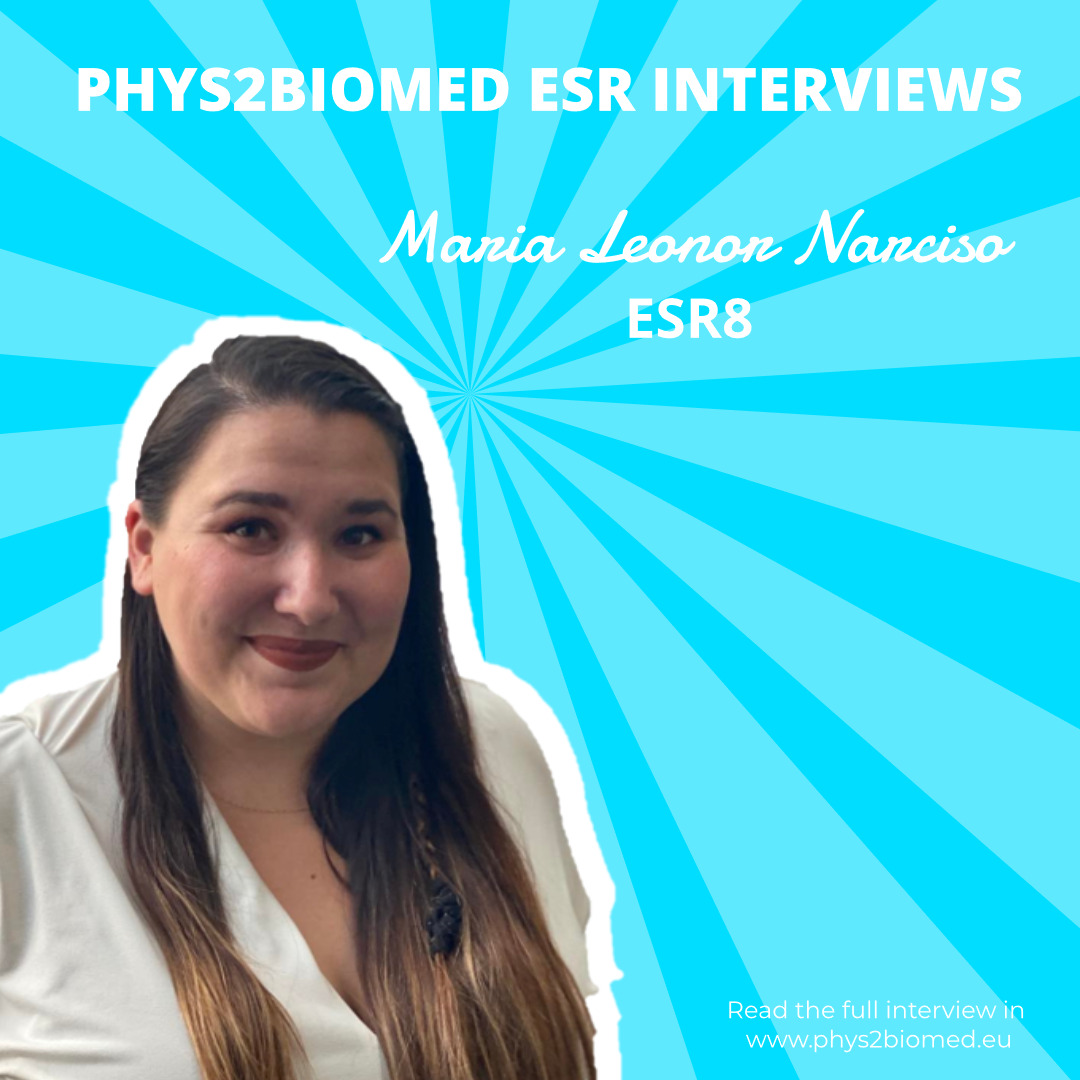ESR8. Maria Leonor Narciso
Short biographic note
I completed my integrated master’s programme in Biomedical Engineering in 2019 from Instituto Superior Técnico, Lisbon. My master’s specialization was in Biomechanics and Medical Devices and during these years I developed a great interest for mechanobiology and the role of mechanics in diseases.
Consequently, the research for the master thesis was carried out in a mechanobiology lab in KU Leuven’s – the MATrix group. There, I developed and optimized nanoindentation protocols for the mechanical characterization of soft hydrogels that are used in 3D Traction Force Microscopy for in vitro invasion assays. I also learned a lot about research and decided to pursue my studies and apply for a PhD position.
Currently, I am based in IBEC in Barcelona and am focused on defining the differential mechanical properties of lung tissue and ECM clinical biopsies in the context of lung cancer diagnosis using AFM technology..
E-mail: mnarciso@ibecbarcelona.eu
Project Title
Tissue and ECM mechanical fingerprints of lung cancer
Start date
1st June 2019
Beneficiary
Objectives
To define differential mechanical properties of tissue and extracellular matrix (ECM) of lung clinical biopsies performed for lung cancerdiagnosis.
Expected results
The study will be carried out in tissue samples obtained from biopsies performed for lung cancer diagnosis at the Clinic Hospital of Barcelona (affiliated with UB). Standardised protocols for preparation of lung tissue samples obtained from biopsies for AFM measurements. Characterisation of viscoelastic properties of normal and cancer lung ECM and tissue. Mechanical heterogeneity of normal and cancer lung tissues. Correlation between mechanical properties, molecular composition and structure of ECM of normal and cancer lung tissues. Mechanical fingerprints of parenchymal tissue and acellular ECM in patients with lung cancer.
Planned secondments.
Publications
Image-Based Method to Quantify Decellularization of Tissue Sections. Maria Narciso, Jorge Otero, Daniel Navajas, Ramon Farré, Isaac Almendros and Núria Gavara. Int. J. Mol. Sci. 2021, 22(16), 8399; https://doi.org/10.3390/ijms22168399
Interview

Question 1: Where are you from and where are you conducting your research now?
Maria Leonor: I’m from Portugal and I am currently conducting my research in Barcelona, Spain.
Question 2: Tell us about your background. (Ex.: Bioengineer with a masters in biomechanics and biomedical devices).
Maria Leonor: I am a Biomedical Engineer with a specialized masters on biomechanics and medical devices.
Question 3: Can you describe your project in one sentence?
Maria Leonor: The mechanical and biochemical study of the extracellular matrix of lung tumor metastasis.
Question 4: What do you enjoy the most on your day-to-day professional life?
Maria Leonor: Definitely data analysis! I know it might sound boring to most people, but I think I have an addiction to it. I can get tired of experiments, or writing for example, but with data analysis I have to stop myself or I could do an all-nighter just analysing data. Yes, I know it’s weird! (laughs)
Question 5: What’s the best and worst part about academia?
Maria Leonor: I think the best part is definitely the flexibility and autonomy you get. There are few jobs out there that allow you to build your own schedule and somewhat manage your own project even at an early career stage. The worst is probably the long-term job security, especially in countries like Portugal or Spain.
Question 6: What 3 traits do you believe are most useful to succeed in this occupation?
Maria Leonor: I think for sure you need creativity, resilience and ambition.
Question 7: Why did you choose a research path?
Maria Leonor: Well, I wish I could tell you it’s something I dreamed of my whole life, but it wasn’t really like that for me. I did my masters in KU Leuven and I really fell in love with research during that time. I felt that I liked every part of it: the experiments, the writing, the autonomy and, of course, the data analysis, so I just decided to continue doing it. I decided to stop overplanning my entire future and career and to follow more my instincts and what feels right at the time.
Question 8: What’s the most interesting thing about you that we wouldn’t learn from your CV alone?
Maria Leonor: That my dream job is to be an escape room game master. I am still trying to find a way to do it part time (laughs).
Question 9: If we finish this interview and you step outside and find a lottery ticket that ends up winning €10 million. What would you do?
Maria Leonor: Ok, so half I would set aside and invest or save. With the other half, I would buy myself a big modern apartment in Lisbon, since the prices are crazy right now! I would also renovate my mom’s house and I would love to buy some land for an animal shelter or something. Ah, and I would definitely set aside a big portion for clothes, which I love (laughs).
Question 10: If you were stranded on a deserted island, what three things would you have and why?
Maria Leonor: Assuming my survival is guaranteed, I would have my painting supplies, a book with the complete works of Jane Austen and photo album of my friends and family.
 Biomechanics in health and disease:
Biomechanics in health and disease: